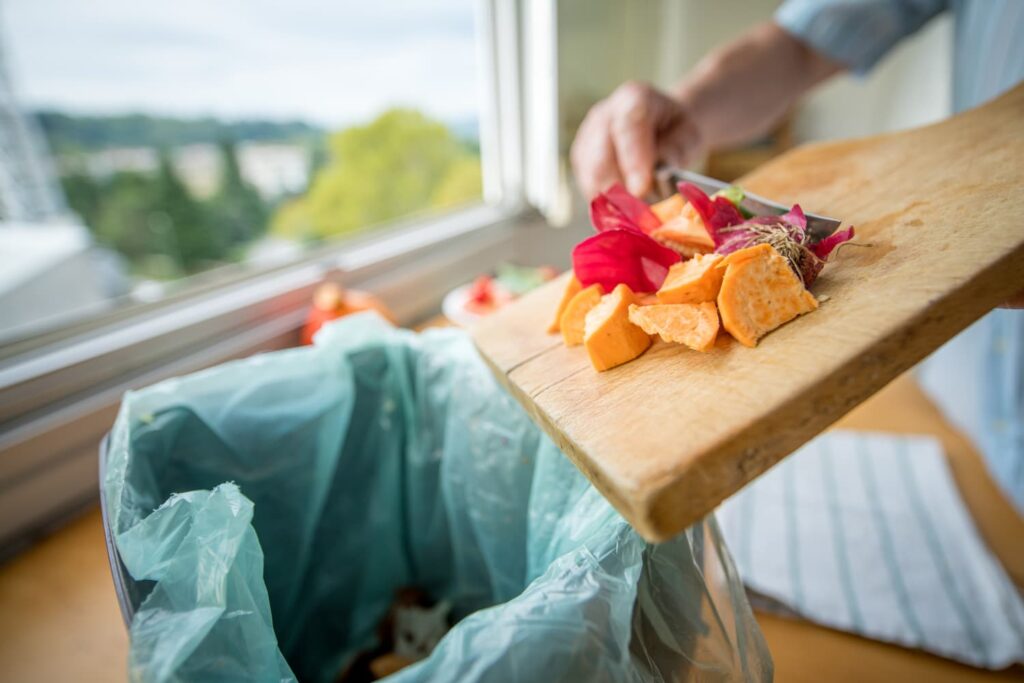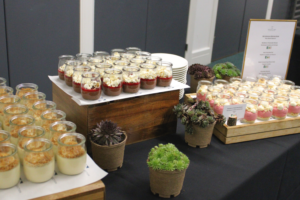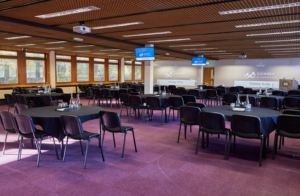
Less is More
As we see our grocery bills climb week-on-week, the pressure is on us all to spend more wisely. The Venues Collection Group Executive Chef Sam Morgan believes that one of the best ways to save on our food spend is by reducing the amount we throw away. And he’s convinced that the same waste-reduction measures that he uses in his professional kitchens can be applied at home. Sam shares some of his tactics below:
Little and often
My responsibility at work is to control food costs without compromising on quality and I believe it all starts with the way we buy. It’s time to move away from that mega weekly supermarket trip, to shopping more thoughtfully, more often and only buying for the next few days. Nobody needs ten packs of bacon in their fridge. Apart from anything else, it’s important to be able to see what’s in there.
Quality not quantity
I buy all-British meat at home, which I get from a butcher. It’s more expensive but several days a week we eat non-meat alternatives. At the supermarket I’ll buy a British free-range chicken but use every last bit of it – right down to the bones, which make great stock.
To avoid finding left-overs covered in blue fur at the back of the fridge, for all but raw meat, reserve the eye-level shelf for items likely to go off soonest, so they’re literally front of mind when you’re planning the next meal. And once a week have a use-up day: culinary odds and ends make fantastic omelettes.
The big chill
Your freezer can be your best friend: cook more than you need , then freeze, freeze, freeze – or reserve some for your next day’s lunch. Surplus sauces like pesto can be frozen in ice cube trays then transferred to a plastic bag, all ready to stir into your next pan of pasta.
If you’ve bought more bread than you’re going to need, pop some slices in the freezer and you’ll always be able to rustle up something on toast.
Here and now
We’ve got into the habit of buying whatever fruit and veg we fancy all year round, without thinking too much about where it has been flown in from. But seeking out local, seasonal produce is a real sustainable choice that will reduce your carbon footprint.
Lots of us talk of one day getting an allotment – you can grow so many interesting, unusual things. But if that’s not practical for you right now, make friends with someone who has one. Before you know it, you’ll be inundated with armfuls of free beans and rhubarb.
Every scrap
Being sustainable is about throwing away as little away as possible, so think creatively about using the whole of a vegetable. Bits of carrot, chopped cabbage, onion or celery make wonderful salads and soups, especially with left-over herb stalks and yesterday’s chicken.
Herbs from the supermarket are expensive so why not grow your own? Last weekend I went to the garden centre and bought ten different herbs. That probably cost me £15.00 but I’ve got a year’s worth of herbs – and of course I’ll only pick the leaves I need.
Learn from the past
Progress is a wonderful thing, but our grandparents could teach us plenty about sustainable food choices. Their generation throw away far less than we do – and they make a little go a long way. Leftovers from last night’s dinner can morph into an entirely different meal with a little creative thinking.
And, just like our grandparents, rather than restricting your food choices to the supermarket shelves, why not give your local farmers’ market or farm produce shop a try? You’ll have the satisfaction of knowing you’re buying fresh, seasonal food that has been sourced within the UK and you’ll be supporting a local business. Another sustainability tick!
Talk to our sales team about booking one of our venues for your next event: enquiries@thevenuescollection.co.uk
Go back to other articles

